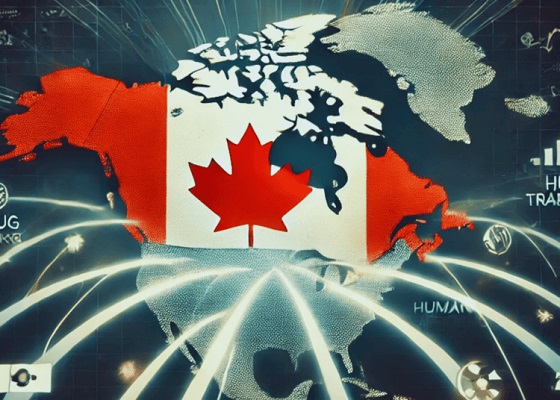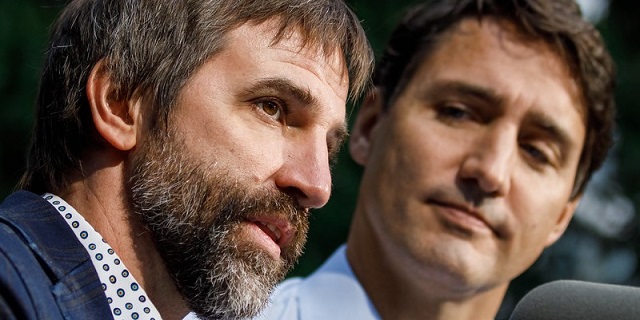Alberta
Danielle Smith skewers Trudeau environment minister as ‘menace’ over new emissions cap scheme

From LifeSiteNews
‘I quite frankly hope that Justin Trudeau replaces this minister. He’s a menace. He’s a menace to us. He’s a menace to national unity,’ Danielle Smith said of Environment Minister Steven Guilbeault.
Alberta Premier Danielle Smith called upon Prime Minister Justin Trudeau to replace his environment minister, Steven Guilbeault, calling him a “menace” and a threat to national unity.
“The attitude that Minister Guilbeault has taken toward our province is absolutely unacceptable,” said Smith while speaking to reporters at the United Nations’ COP28 climate confab last Thursday concerning the Trudeau government’s proposed oil and gas production cap.
“I quite frankly hope that Justin Trudeau replaces this minister. He’s a menace. He’s a menace to us. He’s a menace to national unity,” she noted.
Smith also noted how she has a plan to “shield” Alberta from the federal government’s dictates, adding that her province will “not tolerate it.”
“Our province is simply done with what amount to a steady stream of economic sanctions and punitive measures thrown upon our citizens and businesses to intentionally damage their livelihoods and the economic engine that disproportionally powers our national economy and the programs that Canadians rely on,” she said.
“Over the coming months, our Cabinet and Caucus will develop a constitutional shield in response to this and other recent attacks on our province by what is fast becoming one of the most damaging federal administrations in Canadian history.”
Smith’s comments came after Guilbeault unveiled a plan at the United Nation’s “climate change” COP28 conference last Thursday to slash oil and gas emissions by 35 percent to 38 percent, below 2019 levels. He claimed that it is important to reach “carbon neutrality in Canada by 2050.”
Natural Resources Minister Jonathan Wilkinson claimed that the federal government’s new rules are needed to keep the planet from “burning up.”
Smith agreed to attend COP28 to paint her province in a positive light and to promote its oil and gas industry in direct opposition to the Trudeau feds. She said Alberta and Canada are under attack by the Trudeau government and his self-admitted “eco-extremist” environment minister.
Smith stressed that the federal government “[m]ust stay out of our province’s constitutional jurisdiction and instead work with us to align their emissions reduction efforts with our effective made-in-Alberta plan.”
Last week, she warned the federal government under Trudeau to “watch” her over how she will shield her province from economic damage and high fuel prices after the feds announced Guilbeault’s plan to cut oil and gas production by a third by 2030 via an “emissions” reduction scheme.
The Trudeau government is trying to force net-zero regulations on all Canadian provinces, notably on electricity generation, as early as 2035. His government has also refused to extend a carbon tax exemption on heating fuels to all provinces, allowing only Atlantic provinces, this benefit.
Trudeau’s current environmental goals are in lockstep with the United Nations’ “2030 Agenda for Sustainable Development” and include phasing out coal-fired power plants, reducing fertilizer usage, and curbing natural gas use over the coming decades.
The reduction and eventual elimination of the use of so-called “fossil fuels” and a transition to unreliable “green” energy has also been pushed by the World Economic Forum (WEF) – the globalist group behind the socialist “Great Reset” agenda – an organization in which Trudeau and some of his cabinet are involved.
Recent court rulings back Alberta and Saskatchewan’s right to develop natural resources
Two recent court rulings dealt a serious blow to the Trudeau government’s environmental activism via legislation. The most recent was the Federal Court of Canada on November 16 overturned the Trudeau government’s ban on single-use plastic, calling it “unreasonable and unconstitutional.”
The Federal Court ruled in favor of the provinces of Alberta and Saskatchewan by stating that Trudeau’s government had overstepped its authority by classifying plastic as “toxic” as well as banning all single-use plastic items, like straws, bags, and eating utensils.
The second ruling comes after Canada’s Supreme Court recently sided in favor of provincial autonomy when it comes to natural resources. The Supreme Court recently ruled that Trudeau’s law, C-69, dubbed the “no-more pipelines” bill, is “mostly unconstitutional.” This was a huge win for Alberta and Saskatchewan, who challenged the law in court. The decision returned authority over the pipelines to provincial governments, meaning oil and gas projects headed up by the provinces should be allowed to proceed without federal intrusion.
Canada’s Supreme Court recently sided in favor of provincial autonomy. A Supreme Court ruling stating that Trudeau’s law, C-69, dubbed the “no-more pipelines” bill, is “mostly unconstitutional.” This was a huge win for Alberta and Saskatchewan, who challenged the law in court. The decision returned authority over the pipelines to provincial governments, meaning oil and gas projects headed up by the provinces should be allowed to proceed without federal intrusion.
The Trudeau government, however, seems insistent on defying the recent rulings by pushing forward with its various regulations.
Last month, after announcing she had “enough” of Trudeau’s extreme environmental rules, Smith said her province has no choice but to assert control over its electricity grid to combat federal overreach, by enacting its Sovereignty Act.” The Sovereignty Act serves to shield Albertans from future power blackouts due to federal government overreach.
Unlike most provinces in Canada, Alberta’s electricity industry is nearly fully deregulated. However, the government still has the ability to take control of it at a moment’s notice.
Alberta
Working to avoid future US tariffs, Alberta signs onto U.S. energy pact
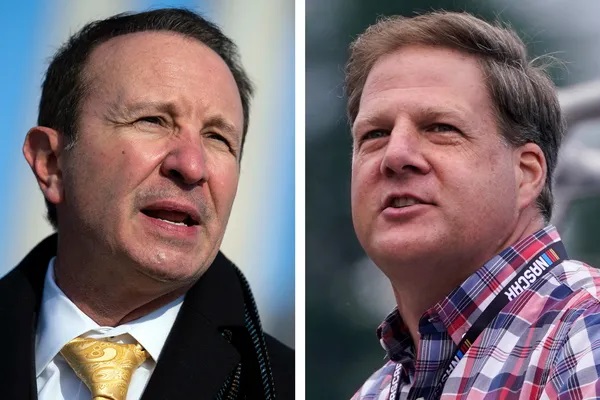
Louisiana Governor Jeff Landry and New Hampshire Governor Chris Sununu of the Governors’ Coalition for Energy Security
Premier Danielle Smith has joined the Governors’ Coalition for Energy Security to further support advocacy of Alberta’s energy and environmental interests with key U.S. states.
The coalition was established in September 2024 by U.S. State governors Jeff Landry (Louisiana) and Chris Sununu (New Hampshire) with the aim of ensuring energy security, lower energy costs, increased reliability, sustainable economic development and sensible management of energy resources and the environment. With 12 U.S. states already signatories to the coalition, Alberta is the first non-U.S. state to enter into this agreement.
By expanding energy ties with the U.S. and promoting cross-border energy trade and participation, Alberta is helping to build upon its North American Energy strategy. Alberta already accounts for 56 per cent of all oil imports to the U.S. – twice as much as Mexico, Saudi Arabia and Iraq combined – which is helping to drive job creation and prosperity on both sides of the border. Natural gas also plays an important role in North America’s energy mix. Alberta is the largest producer of natural gas in Canada and remains positioned to support the U.S. in filling their domestic supply gaps.
“I am honoured to join the Governors’ Coalition for Energy Security and would like to extend my sincere thanks to governors Landry and Sununu for the invitation. Alberta plays a vital role in North American energy security, serving as the largest supplier of crude oil and natural gas to the United States. With 200 billion barrels of recoverable oil, 200 trillion cubic feet of recoverable natural gas, significant natural gas liquids and ample pore space for carbon capture, Alberta’s contribution is set to grow even further as we look to work with the Trump Administration and other U.S. partners to increase our pipeline capacity to our greatest friend and ally, the United States. We are proud to collaborate with this coalition of allied states in advancing energy security, reliability and affordability for Americans and Canadians.”
“Our mission as an organization has not changed but Alberta’s welcome arrival to our group sparked a conversation about what our core mission is, and that is ensuring energy security in all its forms. Our members all share the common goal of enhancing and protecting energy options for our people and businesses, which leads to lower energy costs, increased reliability, sustainable economic development and wise management of energy resources and the environment. I welcome Premier Smith and the insights she will bring as the leader from a fellow energy-producing province, that like my state, is under a federal system of government where national imperatives are not always aligned with state or provincial interests.”
Alberta is a global leader in emissions reduction technology and clean energy solutions. The province has captured about 14 million tonnes of carbon dioxide through carbon capture, utilization and storage technology, and has the ability to support the U.S. in developing new infrastructure and supply chains for future energy markets in the areas of hydrogen, renewables, small modular reactors and others.
Alberta is also unlocking its untapped geological potential to help meet the increasing demand for minerals – many of which are used worldwide to manufacture batteries, cell phones, energy storage cells and other products. This includes the province’s lithium sector where Alberta’s government is supporting several innovative projects to develop new ways to extract and concentrate lithium faster and with higher recovery rates that are less capital and energy intensive and have a smaller land-use footprint.
As part of this coalition, Alberta looks forward to sharing best practices with states that already have expertise in these areas.
Quick facts
- The U.S. is Alberta’s largest trading partner, with C$188 billion in bilateral trade in 2023.
- In 2023, energy products accounted for approximately C$133.6 billion, or more than 80 per cent of Alberta’s exports to the U.S.
- The Governors’ Coalition for Energy Security’s 12 signatory states include Louisiana, New Hampshire, Indiana (Governor Eric Holcomb), Alabama (Governor Kay Ivey), Georgia (Governor Brian Kemp), Tennessee (Governor Bill Lee), South Dakota (Governor Kristi Noem), Mississippi (Governor Tate Reeves), Arkansas (Governor Sarah Huckabee Sanders), Oklahoma (Governor Kevin Stitt), Wyoming (Governor Mark Gordon) and Virginia (Governor Glenn Youngkin).
Alberta
New red tape reporting website will help ramp up housing construction in Alberta

Helping builders by putting an end to housing delays
Alberta’s new Stop Housing Delays online portal will allow developers, municipalities and other housing partners to report red tape and unnecessary home-building delays.
Alberta’s government is focused on ensuring Albertans have access to the housing they need, and that means working to streamline processes, cut red tape and reduce delays that are slowing housing construction down. As part of this work, government has launched a new online portal to help in these efforts.
The Stop Housing Delays online portal is now available for developers and municipal authorities to help identify areas that are preventing fast and efficient residential construction. This portal will help government identify and address barriers to building homes across the province.
“The Stop Housing Delays portal will allow Alberta’s government to hear directly from developers, municipalities and other partners on where delays are happening in the construction process. This will help identify and remove barriers, ultimately getting homes built faster and continuing Alberta’s record home-building pace.”
“Alberta’s government will continue to work with municipalities and find solutions to speed up the home-building process. The Stop Housing Delays portal will give us another tool to inform those discussions and identify areas where we can improve the pace of home building.”
Once developers, municipalities or industry partners have submitted their issue using the online form, government will collect and assess the information provided. Alberta’s government will be taking a collaborative, cross-ministry approach to ensure the appropriate departments are working together to find solutions where possible. Solutions may range from minor changes to policy reform.
Alberta’s government continues to support builders and encourage new residential housing construction by reducing red tape, incentivizing housing construction and supporting innovative strategies to build homes faster than ever.
“This webpage is an excellent opportunity to gather knowledge and further eliminate red tape. Government has been persistent in our approach of cutting red tape and removing roadblocks, and this will help to speed up residential construction. I look forward to hearing from developers and our other partners on how we can help get projects moving and Albertans in homes.”
Alberta continues to see strong housing starts and increases while other provinces across Canada are seeing a reduction in housing starts. The first half of 2024 saw 9,903 apartment unit starts in the province. This marks the highest amount in any half year in Alberta’s history, breaking the previous record of 9,750 set in 1977. Albertans will benefit from 33,577 new housing starts from January through September 2024, up 35 per cent from the same period last year. Alberta’s government remains focused on working with industry and non-profit partners to ensure that the province’s growing population has access to the housing it needs.
“This portal is a valuable tool for industry to highlight gaps, barriers and delays that may need to be prioritized and addressed by either local or provincial governments. Real solutions can only emerge through transparency, open communication and collaboration. This is an important step toward identifying the unique challenges each region and municipality faces in delivering attainable housing.”
Quick Facts
- Housing starts for January – September 2024 compared with January – September 2023
- Provincewide: 33,577 compared with 24,904 (up 35 per cent)
- Edmonton: 13,359 compared with 9,099 (up 47 per cent)
- Calgary: 17,414 compared with 14,141 (up 23 per cent)
- Lethbridge: 599 compared with 148 (up 305 per cent)
- Red Deer: 314 compared with 146 (up 115 per cent)
- Data shows Alberta had 10,699 purpose-built rentals, making up 32 per cent of all housing starts.
- Since 2019, Alberta’s government has invested almost $850 million to build more than 5,100 units and close to 900 shelter spaces. This includes projects we have committed to, that are in progress and that are complete.
- Together with its partners, Alberta’s government is supporting $9 billion in investments into affordable housing to support 25,000 additional low-income households by 2031.
Related information
-

 National2 days ago
National2 days agoLiberals, NDP admit closed-door meetings took place in attempt to delay Canada’s next election
-

 Digital Currency2 days ago
Digital Currency2 days agoConservatives urge Canadians to reject mandatory digital IDs proposed by Liberal gov’t
-
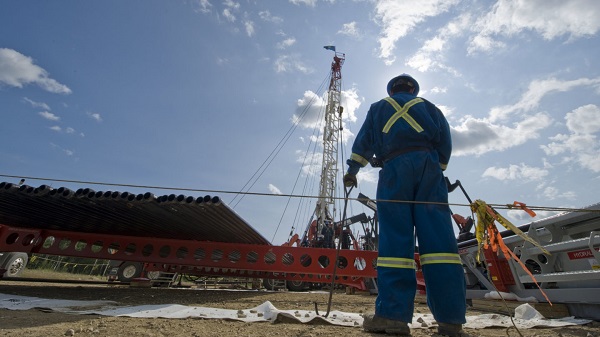
 Canadian Energy Centre1 day ago
Canadian Energy Centre1 day agoIgnoring the global picture and making Canadians poorer: Energy and economic leaders on Ottawa’s oil and gas emissions cap
-

 Energy1 day ago
Energy1 day agoFederal government’s ’carbon-free’ electricity target far-fetched
-
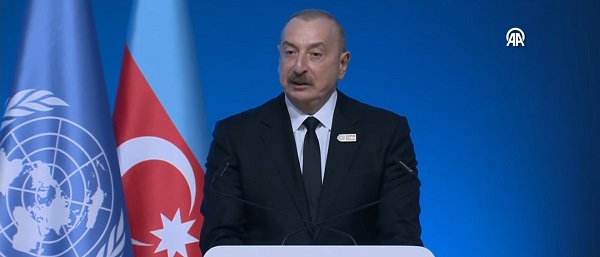
 Daily Caller1 day ago
Daily Caller1 day agoPresident Of Country Hosting UN Climate Summit Defends Fossil Fuels, Slams Media And Green ‘Hypocrisy’
-

 Alberta1 day ago
Alberta1 day agoNew red tape reporting website will help ramp up housing construction in Alberta
-
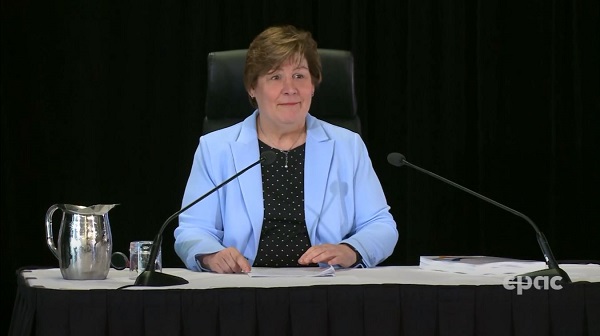
 espionage1 day ago
espionage1 day agoBreaking: Hogue Commission Will Hear From New Safety-Protected Witnesses On PRC Targeting of Chinese Candidates
-

 Disaster2 days ago
Disaster2 days agoFEMA skipping homes in disaster areas lures calls for federal probe


